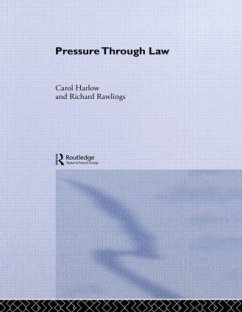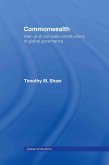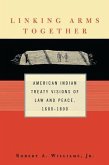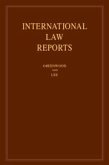In the United States, group litigation has been recognized by political scientists as a means of gaining ground and attracting publicity for pressure groups since the turn of the century. In Britain, campaigning through litigation is a relatively new phenomenon. "Pressure Through Law" examines the extent to which groups in Britain are using the law to achieve their ends. The authors analyze the significance of the political environment in Britain in test-case strategy. In contrast with the United States, Britain has no written constitution and no Bill of Rights, and its lack of Freedom of Information legislation makes both litigation and the monitoring of its effects very difficult. The centralized character of the British government causes the effects of lobbying to be more highly visible in the corridors of power. Carol Harlow and Richard Rawlings present an extremely thorough study of the use of litigation by pressure groups, citing a large number of relevant cases in Britain. They also look at transnational law and at the global dimension, discussing the campaign tactics of organizations such as Amnesty International and Greenpeace. The authors, both experienced in public law, link legal systems to the political process in a book which will be important and accessible reading for lawyers, political scientists, and lobby group activists.
Hinweis: Dieser Artikel kann nur an eine deutsche Lieferadresse ausgeliefert werden.
Hinweis: Dieser Artikel kann nur an eine deutsche Lieferadresse ausgeliefert werden.








